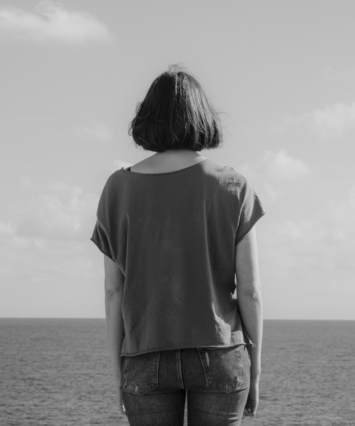Architect, inventor, pilot and poet, Erik Andren was a polymath, an original thinker whose inquisitive mind was interested in everything from physics to psychology. Born in Batu Gaja, Malaysia in 1938, his childhood was thrown into confusion by a congenital heart condition—and World War II.
Andren’s father was an aero-engineer in Malaysia, but as the Japanese advanced down the Malay Peninsula, the three-year-old Erik was put into boarding school in Britain. After the war, his mother took him to Kodaikanal hill resort in south India, to a climate favourable to his health. They travelled to John Hopkins University Hospital in Baltimore, in search of treatment for his heart, from where he was referred to Guy’s Hospital in London. There, in 1950, aged 12, he was the twelfth ever open heart surgery patient in the UK, lying in those days on a bed of ice.
As a result of these circumstances, Andren attended 14 schools on three continents, showing great intelligence despite coping with dyslexia. He studied architecture at Kingston School of Art, Surrey. He joined a firm of engineers, as architect in residence, designing airline facilities, including catering kitchens and shops, at Heathrow; in Benghazi, Libya; Rome, Italy, and in Geneva, Switzerland; as well as housing in Britain.
In the early 1970s he co-founded an architectural practice with four other partners in Weybridge, Surrey. But they struggled through the first oil shock of 1972, when demand for architects’ services slumped, and his partners had to leave. Andren’s lateral thinking led to his inventions, including the plastic paper feeder, called Margin Maker, for the first Amstrad computer printers, as well as concepts for an affordable river-based hydro-electric system for developing countries.
Andren's interest in people led him to design and write a Changing Course for aspiring politicians and young professionals in Eastern Europe, in response to the collapse of Soviet communism. Launched in 1993, the Changing Course provides the basis for the Foundations for Freedom (F4F) training programme of the Initiatives of Change movement, based in Caux, Switzerland. It highlights the concepts that underpin the moral and ethical foundations for democratic societies, from first principles to issues of personal integrity and ethical and moral behaviour. It also aims to draw on the sources of inner introspection that lead to inspired action.
Despite his own strong Christian beliefs, Andren was fully aware that others may have no religious affiliations and so focused on the need for each participant to spend time in personal R&D—research and development, reflection and decision-making, and from this draw their own strength and conclusions.
Operating initially from London and more recently from Kiev, Ukraine, Foundations for Freedom, with Andren’s thinking at its heart, has delivered 70 courses, each typically lasting a week, to over 1,500 young leaders in 15 central and Eastern European countries as well as in South Africa, India, Canada and Australia. Andren delivered the majority of the initial courses, and ensured that others with similar passion were trained to continue delivery as his health and other commitments made foreign travel more difficult.
One young participant, a music teacher from Romania, was to write: “I didn’t know any more what was right and what was wrong and what I was supposed to do. My main values had become money and survival. I found myself unhappy, stressed and very bitter… Now I feel the only thing I really want to do is to give to others the chance that I was given to experience a deep change in life and a new purpose.”
An unexpected outcome of the F4F courses was the use of Erik’s training manual in a similar “Moral Foundations for Democracy” programme in Sierra Leone, aimed at reintegrating former combatants following the country’s civil war.
Andren was a warm-hearted extrovert, a man of passionate conviction, and a poet who wrote on a broad range of subjects, from his children to philosophy. One of his poems, Not the Bitter Men, about Northern Ireland, was read in parliament.
He was a devoted father and surreptitious romantic. He married Sheila Davidson, a medical practitioner from Glasgow, in 1969, after proposing to her on their first meeting after years apart. They were an ideal match sharing their lives and home with many people for almost 40 years. He described Sheila as the string to his kite. They raised their children, Lindy and Ross, in Staines, Middlesex, and moved to Fowlmere, South Cambridgeshire, when Sheila retired. Here he was able to re-ignite his lifelong passion for flying by joining the local gliding club, as well as using his architectural skills to redesign their new home.
At the time of his death, Andren and his daughter, Lindy, were editing a book based on his experiences with the Changing Course, which she will continue to edit for posthumous publication, along with his poetry.
Andren died peacefully in Papworth Hospital, aged 70, from heart failure, after a life lived to the full. He is survived by his wife, two children and his mother. He is remembered fondly by all for his quick laugh, the twinkle in his eyes, and his passion for sharing life’s deeper concepts with any that would join his conversation.
Christopher Erik Andren, architect, inventor and author, born Batu Gaja, Malaysia, 24 March 1938, married Sheila Davidson, 1969, one daughter, one son, died Papworth near Cambridge, 4 September 2008.
English


